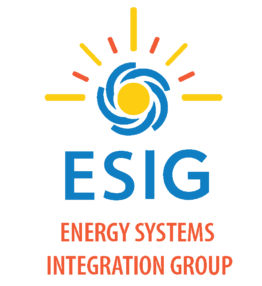
- This event has passed.
Webinar: Investigating the Economic Value of Flexible Solar Power Plant Operation
January 23, 2019 @ 2:00 pm - 3:00 pm EST
DOWNLOAD RECORDING/PRESENTATION FROM THIS WEBINAR
DOWNLOAD WEBINAR QUESTIONS/ANSWERS
Featured Speakers:
Mahesh Morjaria, Vice President – PV Systems, First Solar
 Arne Olson, Senior Partner, Energy and Environmental Economics (E3)
Arne Olson, Senior Partner, Energy and Environmental Economics (E3)
Jimmy Nelson, Managing Consultant, Energy and Environmental Economics (E3)
Dr. Morjaria leads a R&D effort addressing key challenges associated with integrating utility-scale solar plants into the power grid. Prior to joining First Solar in 2010, Dr. Morjaria worked at GE for over twenty years where he held various leadership positions. His academic credits include B.Tech from IIT Bombay and Ph.D. from Cornell University in USA.
Mr. Olson leads E3’s resource planning practice. Since joining E3 in 2002, he has led numerous analyses of how renewable energy and greenhouse gas policy goals could impact system operations, transmission, and energy markets. In 2013, he led the technical analysis and drafting of the landmark report Investigating a Higher Renewable Portfolio Standard for California, prepared for the five largest  utilities in California. Since that time, he has overseen numerous studies of deeply decarbonized and highly renewable power systems in California, Hawaii, the Pacific Northwest, the Desert Southwest, New York, South Africa, and many other regions. Mr. Olson earned an M.S. in International Energy Management and Policy from the University of Pennsylvania and the Institut Français du Pétrole, and bachelor’s degrees in Statistics and Mathematical Sciences from the University of Washington.
utilities in California. Since that time, he has overseen numerous studies of deeply decarbonized and highly renewable power systems in California, Hawaii, the Pacific Northwest, the Desert Southwest, New York, South Africa, and many other regions. Mr. Olson earned an M.S. in International Energy Management and Policy from the University of Pennsylvania and the Institut Français du Pétrole, and bachelor’s degrees in Statistics and Mathematical Sciences from the University of Washington.
Dr. Nelson’s work focuses on operations, economics, and planning of electricity systems with large shares of variable renewable energy resources. Prior to joining E3 in 2016, he was an Energy Modeler and a Kendall Science Fellow at the Union of Concerned Scientists. Dr.  Nelson received his Ph.D. from the Energy and Resources Group at UC Berkeley in 2013, during which he received a Link Energy Fellowship. Dr. Nelson has wide-ranging experience in the non-profit, academic, and consulting sectors, and has provided expert testimony to the California Public Utilities Commission on electricity planning. He received an M.S. in Chemistry in 2008 for work on solar energy conversion using nanoparticles and a B.S. in Chemistry with High Honors from Haverford College in 2006.
Nelson received his Ph.D. from the Energy and Resources Group at UC Berkeley in 2013, during which he received a Link Energy Fellowship. Dr. Nelson has wide-ranging experience in the non-profit, academic, and consulting sectors, and has provided expert testimony to the California Public Utilities Commission on electricity planning. He received an M.S. in Chemistry in 2008 for work on solar energy conversion using nanoparticles and a B.S. in Chemistry with High Honors from Haverford College in 2006.
Moderator: Charlie Smith, ESIG Executive Director
Registration Cost: FREE
Webinar Abstract: The webinar will present a report on the simulation of the operations of an actual utility system – Tampa Electric Company (TECO) – and its generation portfolio to investigate the economic value of using solar as an active participant in balancing requirements. A simulation of utility-scale solar deployment levels up to 28 percent annual solar energy penetration was performed on TECO’s system, which serves roughly 725,000 customers in West Central Florida. Looking specifically at the operating cost savings of adding solar generation to the electricity system under four different operating modes, it was found that operating solar flexibly provides significant additional value compared to other operating modes. The increased value – which comes from reduced fuel and maintenance costs for conventional generators, reduced curtailment of solar output, and reduced air emissions – grows as the level of solar penetration increases. Importantly, operating solar this way does not require new technology but rather a shift in thinking – not only about how resources can and should be used, but also in underlying business practices.
The report was prepared by E3 and TECO for First Solar. A link to the report can be found at: https://www.ethree.com/projects/investigating-the-economic-value-of-flexible-solar-plants/

